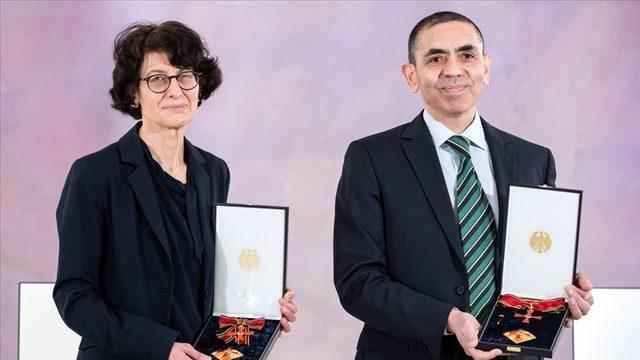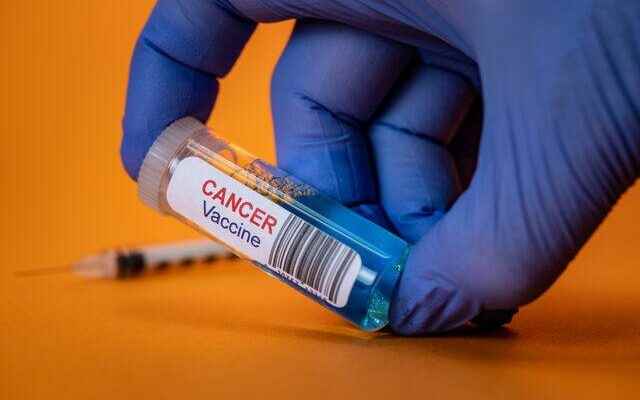Turkish scientists, who developed the first approved vaccine during the coronavirus epidemic, Prof. Dr. Uğur Şahin and Prof. Dr. The first-stage results of the cancer vaccine developed by Özlem Türeci have emerged. According to the news of NTV; It was stated that the cancer vaccine presented at the annual conference of the American Society of Clinical Oncology (ASCO) in Chicago, which was held recently, can trigger the immune system to attack tumor cells and successfully keep the disease away.
“HEALER OF THE TREATMENT AGE”
The founders of BioNTech met with doctors in New York about the vaccine for pancreatic cancer patients, which is tailored for each patient.
It was stated that the findings obtained in the first phase results of the clinical study, which is the first of its kind, are hoped to herald a new era of treatment for other difficult-to-treat cancers.
IT CAN ALSO BE USED IN OTHER TYPES OF CANCER
In the study, which stated that pancreatic cancer contains deadly tumors, it was underlined that only a quarter of those who got the disease survived for a year or more, while the researchers said that the latest findings could pave the way for the use of the technology in other cancers.

WE ARE VERY EXCITED BY THE EARLY RESULTS
D., principal investigator of Memorial Sloan Kettering Cancer Center in New York. “Unlike some other immunotherapies, these mRNA vaccines appear to have the ability to stimulate immune responses in pancreatic cancer patients,” said Vinod Balachandran.
THE CANCER ENDS AFTER 18 MONTHS
In the study, which reported that about 20 percent of pancreatic patients were eligible for surgery, the researchers analyzed their tumors and discovered that they had a large number of immune cells, especially T cells that protect the body from infection and help fight cancer.

In the cancer vaccine, developed with the mRNA technology used in the coronavirus vaccine, sixteen patients received the first of nine vaccine doses nine weeks after pancreatic cancer surgery, half of which produced a significant immune response.
INVESTIGATION OF PATIENTS THAT DO NOT HEAL
At 18 months, all eight patients beat cancer, while vaccine-activated T cells were reported to stop cancer recurrence. Six out of eight patients who did not respond to the vaccine had their cancer relapsed a year later, while researchers are still investigating why half the group did not respond.
NEED NINE DOSES OF VACCINE
“By leveraging our long-standing research in cancer vaccination, we are determined to meet this challenge and seek to break new ground in the treatment of such hard-to-treat tumors,” said Türeci, co-founder of BioNTech.
“PART OF THE BODY”
D., principal investigator of Memorial Sloan Kettering Cancer Center in New York. Vinod Balachandran, on the other hand, said that patients needed nine doses of the vaccine because, unlike a pathogen like the corona virus, cancer is “part of the body.”
Dr Chris MacDonald, UK Head of Pancreatic Cancer Research, said the vaccine could be “a vital new weapon against the deadliest and most widespread cancer”.
“It’s really exciting to see this progress in a cancer that hasn’t been treated for this long,” MacDonald said.
